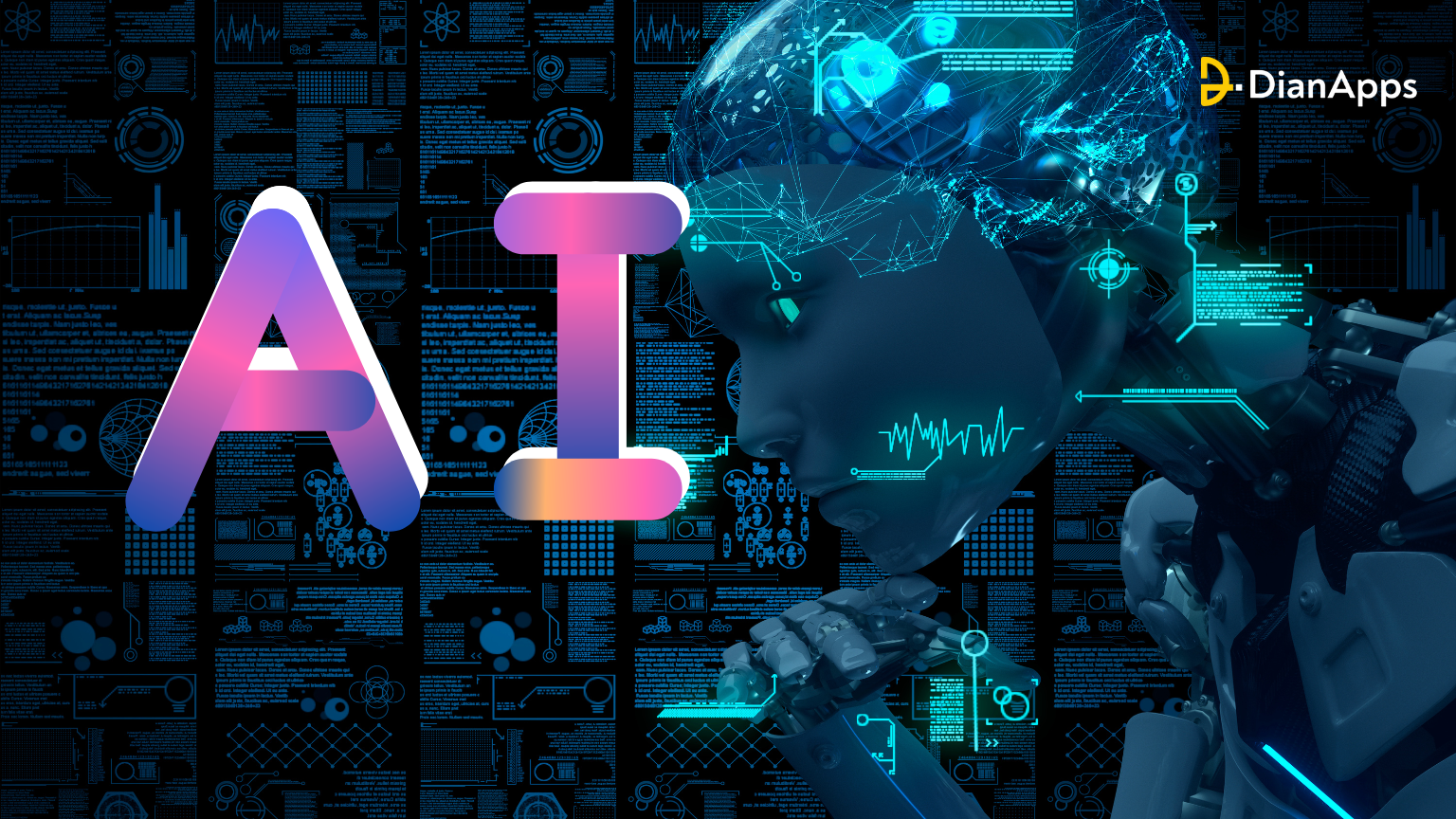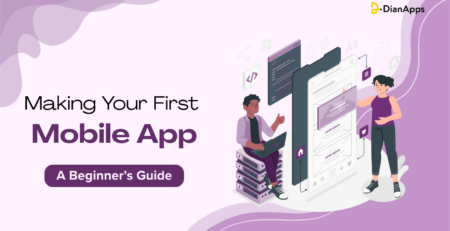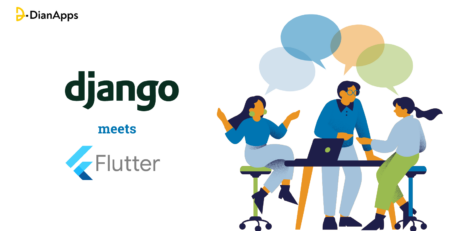How to Develop an AI Music App?
The phrase “artificial intelligence” is not new in the context of changing and growing technologies. Artificial intelligence is becoming more and more prevalent in everyday life, and this has an impact on many facets of both business and living.
AI in the music business has made it possible to automate music composition. AI is helping songwriters record songs more affordably and giving audiences personalized music. Technology has swiftly evolved into the preferred alternative for the sector thanks to its ability to simplify tasks, reinvent processes, and streamline services.
Do you know how you can write lyrics and tune them into a video? OpenAI Sora can do it! Read how!
These same forces are driving the use of AI music apps. Even though it seems like science fiction, robots are already creating song lyrics, performing music, and creating music using AI. Artificial intelligence is not a groundbreaking use of technology in the music industry.
Today, we’ll talk about AI’s advantages and steps for the music business in this blog post as a leading mobile app development company. Now let’s get going!
AI in the Music Industry: How beneficial it is for your business?
Thanks to recent technical developments, artificial intelligence can now create music.
- The AI music app will first need to be trained by giving it a variety of musical compositions to look at. Artificial intelligence picks up on the elements and techniques of creating music that listeners are likely to find enjoyable.
- It could combine several musical elements in novel ways to produce new music. AI-powered apps and music software app development solutions are becoming more and more common, as is the use of AI in digital sound processing, learning, improvisation, mixing, and music creation. In fact, the best AI music generator for businesses can help companies generate unique and engaging audio content quickly, streamlining processes for everything from marketing to product development.
- Additionally, the AI music app has made it affordable and accessible for anybody to create professional-sounding music on any device. Nearly everyone has used technology and is aware of its true advantages.
- Still, this was no easy feat. These days, Spotify uses artificial intelligence (AI) to help sift through the 20,000+ new music that are added to the site each day. We just can’t keep up with the current listener’s constantly evolving tastes at such a high decibel level.
- The process of perfecting music may be quite expensive for many aspiring amateur musicians. Many music platforms employ AI music apps (AI) to run on a freemium model and provide a complete range of services through subscriptions.
- Numerous music software programs are now available that offer performance feedback while you learn any instrument.
In general, AI-driven technologies help produce music that is not subject to royalties, affordable solutions for mastering music, and various alternative educational applications for composers. Music composition is already done with artificial intelligence.
For example, Magenta is a Google product that uses machine and artificial learning to produce new music. Users commend the tool for being very user-friendly, which makes it great for both novice and experienced artists.
AI-assisted music composition is an intriguing process. From the data it gathers from different compositions, it produces insights. The use of algorithms is the following stage. They use it to search for characteristics and patterns that constitute good music. These kinds of events may be the end of the idea of musical genres.
Famous AI Use Cases in the Music Industry-
Among the most well-known applications of AI music apps are:
1. Music Composition:
Using AI, users may create their rhythms and melodies by accessing a variety of remixes and composition tools. With some well-known musicians producing AI-generated albums, AI-generated music is growing in popularity.
There are more AI tools available to help experienced and novice artists alike create their unique music. Users may perfect their music with the help of artificial intelligence using the LANDR audio mastering program. It lets you match production components to record-quality music to create output filters.
2. Music streaming:
This method is used to evaluate millions of users’ listening habits and musical preferences on broadcasting platforms. It is good at finding similar themes in thousands of songs. Every week, Spotify’s AI-powered Discover Weekly feature generates the power of a personalization playlist for each member based on their streaming habits and artist preferences.
Spotify plays music based on how you interact with different artists and songs, how often you repeat certain tracks, and other activities you engage in. The interesting thing is that you can discover who else is listening to similar playlists by simultaneously analyzing millions of people.
3. Mastering Music:
Traditionally, audio mastering has been carried out in a studio with certain acoustics, which enables a human to detect issues with spectral range and sound balance, among other things. To put it simply, quality control helps find issues and maximizes music listening on every device.
Artificial intelligence (AI) has the potential to improve the flow between tracks in an album by reducing the amount of manual work and human error involved in the mastering process. The trend of using AI music apps for mastering has become more and more common among nascent, less experienced artists. One of the primary causes for the surge in interest is the affordability of high-quality AI mastery.
Standout Features of AI Mobile Apps:
Prioritize your business and user needs before diving into technical details to ensure the success and scalability of your Artificial Intelligence music application. You’re going to need to put a lot of thought into this endeavor.
Since this is the most important factor, don’t forget to work closely with a professional mobile app development business to make sure you’re headed in the proper direction. Having said that, take into account the following aspects to help your Al music app stand out from the competition:
1. Recommendation engine with intelligence
Don’t you adore your buddies who share your taste in music? You may make an app that turns into that sort of buddy for your users by utilizing this functionality, though.
Your Al music app will make intelligent suggestions in addition to simple ones. Through an analysis of their listening habits, behavior, and tastes, it may tailor music to each user. This is the result of machine learning, which makes accurate suggestions.
We’re talking about individual user-made playlists, albums, and songs. The engine takes into account user context in addition to the pace, genre, and mood of the music. It’s similar to having a personal music genie who always knows just what they need.
2. Make Playlists Autonomously
Users’ ability to discover music in your app may be greatly enhanced by including Al algorithms. How? Imagine your app being able to create playlists based on users’ preferences with only a few taps.
Your Al music app will quickly become their first option, whether they’re looking for the ideal playlist for a road trip, a calm evening, an exercise session, or education.
Read how AI in the education sector is transforming the learning experience.
This function ensures a smooth and delightful audio experience, while also saving consumers valuable time and effort.
3. Emotional Intelligence
You can examine lyrics and audio aspects with the integration of smart algorithms. This aids in your comprehension of each song’s vibe.
What about emotional intelligence, though? These algorithms, when in motion, create songs tailored to suit each mood. Thus, your app acts as a considerate buddy by providing a hand-picked playlist of love songs to users who visit it, say, when they’re in the mood for something romantic. And it’s not just tunes either.
Your app may even recommend podcasts, songs, audio tales, and other content using these functionalities. As a result, the user experience is enhanced and seems more customized and personalized.
4. Advanced Metadata and Tagging for Music
Consider a user who is trying to find the title of a memorable song they heard a while back. Your Al music app can classify songs according to genres, moods, instruments, and more with its comprehensive music tagging feature. Similar to having a personal music librarian who can locate the ideal tune for any given situation.
However, it doesn’t end there. The process of finding music was improved with metadata. It provides important details on albums, singers, and even song lyrics.
You can thus make it simple for your users to search and organize music by using tagging and metadata.
5. Real-time Song Analysis and Lyrics
Even if this function is already present in many well-known music applications, it is still a good idea to include it in your Al Music App.
To increase user engagement, display the song’s lyrics to them while it plays. Additionally, you may highlight noteworthy music passages, offer song trivia, or even decipher and clarify song meanings. Adding these features with the help of a knowledgeable Al development firm might turn your app into a music favorite.
6. Remixing Audio
Users may have fun remixing their favorite songs using Al’s powerful remixing skills. This may be interpreted as giving your app a miniature studio. Users will have the freedom and convenience to mix and combine songs in the studio to show their creativity.
And your Al music app’s level of engagement will undoubtedly increase as a result. Also, the features might offer you a significant advantage over competitors.
7. Composition of Live Music
Composing music is an entirely different game. However, providing a technology that makes this difficult work easier might have a revolutionary effect on your company.
Thus, let your app users create original music compositions in real time.
Steps Involved in Al Music App Development-
Building an app depends on business requirements. But it’s always best to stay prepared in advance for the forthcoming workflow.
So, before exploring the development steps, ensure you have iOS or Android app development services. On that note, let’s break down the key steps involved in Al music app development-
Step 1. Research
Besides brainstorming the creative side of your app, you will also have to do some clerical tasks before starting the actual development. Here are a few research points to bear in mind-
- Explore existing music apps to understand features, user experience, and Al integration.
- Stay updated on industry trends, reports, and competitor innovations.
- Define your target audience’s needs through surveys, interviews, and focus groups.
- Connect with Al and the music software app developer for guidance and insights.
- Attend conferences, join forums, and network with professionals.
Step 2. Select Features for the Al Music App.
You could think of including features that improve user experience in addition to the Al-based and fundamental app functions. A few of them are:
a. Permit Users to Set Up Their Profiles
Permit users to customize their playlists and control them via their profiles. You will benefit from it as well because you may examine user data and determine their preferences. Additionally, users will be able to post and distribute their tracks if they have a profile.
b. Include a music player
The key component that enables people to stream and listen to music is a music player. The player panel lets you change the volume, pause, skip music, and play/pause videos, among other things. In addition, users may examine track lists and album details, add songs to playlists, and shuffle music.
c. Include the user’s library
Permit users to make and maintain playlists. Creating an infinite number of personalized playlists on your Al music app can increase user engagement.
d. Include Album & Artist Profiles
Including artist and album pages is optional, but it gives music fans more details about the music they’re listening to. Release dates, song and album listings, hit songs, and fascinating details about the musician or song may all be found on these pages.
e. Provide an Offline Mode for Users
Without an internet connection, customers may download and enjoy their favorite songs with offline access. To encourage interaction, offer this function to your Al music app’s paid or premium edition if it isn’t already free.
f. Permit Social Media Exchange
When social sharing is enabled on users’ social media accounts, it makes it simple for friends and family to learn about their musical tastes. It should only take a few clicks to complete the sharing procedure, making it quick and easy.
g. Verify the Integration of Payments
You want additional in-app purchases, such as monthly and premium memberships, at the end of the day. You should be able to do this without requiring customers to exit the app by having a smooth payment integration solution.
Step 3. Complete the design of your Al music app.
The UI/UX design services of your app are essential to its success. To begin with, make sure the design of your app is:
- Appealing.
- Extremely Perceptive
- Contemporary
There are usually many steps to the process:
a. Wire-working
To illustrate the general design concept, the designers draw a simple black-and-white drawing of the application.
b. Mock-ups
After that, they create vibrant displays with buttons, icons, and other graphic components. It’s similar to giving a building life.
c. Making prototypes
The group builds an interactive model of the application that lets users tap, swipe, and drag to get a hands-on feel for its features.
Make sure you work closely with the designers on these steps. It will support the upholding of the three tenets required for the success of your Al music app.
Step 4. Complete APIs and the technology stack with your development partner.
The software stack to use while creating an Al music app will vary depending on whatever platforms—iOS, Android, and the web—you plan to target.
If money is tight, start on a single platform and grow from there. As an alternative, think about developing cross-platform apps with a single codebase using React Native or Flutter app development services.
Here are a few more exciting programming tools and technologies that you may consider while building your AI Music App:
Before you choose the ultimate tech stack for your Al music app development project, don’t forget to take into account the following factors:
- Budget
- Required level of customization
- Upkeep
- Your chosen providers’ proficiency with Al technologies
- The necessary scalability and performance
- Target platform compatibility (Android, iOS, web)
- Privacy and data security issues
- Capacity to manage streaming and data processing in real-time compatibility between software and other systems
- Capacity to manage substantial amounts of data for Al processing
- Adherence to industry norms and guidelines
Step 5: Check Out Your Al Music App Exactly
Testing happens all along the way, but when the app is finished developing, it’s imperative to run thorough tests. Your program will be prepared for a successful market release after any bugs or issues discovered by QA engineers have been fixed. Now let’s address the next important issue: determining how much a sophisticated music app will cost.
How Much Does the Development of an Al Music App Cost?
Features, platforms, and tech stack are some of the variables that affect the price. While cross-platform app development is cost-effective, selecting the appropriate platform has an impact on expenses.
Costs are also impacted by features and complexity. Libraries, third-party APIs, and AI-based features increase the expense and duration of development. Project management, testing, UI/UX design tools, and business analysis all play a part.
Apps using Al-based architecture that are simple and sophisticated may cost different, according to estimates. Thus, it’s best to refrain from responding to any odd quotes you come across. To be sure, conduct your study or consult specialists.
Updating user comments, promotion, maintenance, and app store fees are additional expenses. But keep in mind that the ultimate cost will depend on the particulars of your project and the tech stack you select.
Experience Developing Al Music Apps Successfully with DianApps
Music streaming is quite popular. Making a superior Al music app out of your amazing concept will allow you to take a piece of the market. That’s what we at DianApps are here to do!
Our custom mobile app development solutions have a track record of creating outstanding apps for a variety of sectors. We’ll collaborate closely with you, ascertain the requirements of the project, and offer a free consultation.
Contact us right now to start working on a great music app together—don’t put it off any longer!




